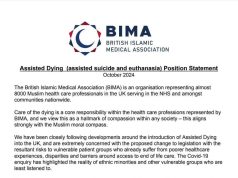At least 30,000 Rohingyas currently staying at the refugee camp in Ukhia near Cox’s Bazar have been receiving treated water supply to keep them away from diseases, thanks to an initiative by a Malaysian NGO.
The field water treatment system, SafeWhere, provided by the Islamic Medical Association Malaysia’s
The system, developed with the help of the Armed Forces Health Services Division, will now be installed at the much larger Balukhali/ Kutupalong refugee camp as well, which houses more than 650,000 Rohingya refugees from Myanmar.
“We found many of the refugees suffering from water-borne diseases and showing symptoms like diarrhoea, vomiting and dehydration.”
While it is true that many parties have built tube wells here, these, however, provide only clean water and not treated water.
“We hope that the installation of the SafeWhere system will help overcome the problem of water-borne diseases by ensuring that the refugees drink not only clean water, but also safe water,” he said when interviewed at the Balukhali refugee camp.
Munawwar, who leads the Imaret SafeWhere water mission, arrived at Cox’s Bazar last Friday. The humanitarian mission comprises six Imaret workers and volunteers and also Dr Mohd Arshil Moideen from the Armed Forces Health Services.
A fresh crisis in the Rakhine state of Myanmar last October saw more than 700,000 Rohingyas running into Bangladesh to seek safety and refuge from the bloody military operations in their state.
There are now more than 1.2 million Rohingya refugees taking shelter in various refugee camps in southern Bangladesh which borders Myanmar.
The influx of Rohingya refugees from Myanmar in the region gained world attention just as it threatened the long-standing relations between the member nations of Asean.
Dr Mohd Arshil, the individual responsible for the development of the SafeWhere system since 2011, which was first used in Afghanistan, said the system was user-friendly and easy to maintain.
“It is a field water treatment solution that is cost effective. If we look at the cases of water-borne diseases, they can actually cost death especially to the older people, pregnant women and children,” said Arshil, who is also Imaret technical advisor.
Meanwhile, the Commander of the Malaysian Field Hospital, Dr Adnan Abdullah, was also present during the delivery of the water treatment system to the Balukhali camp on Sunday.
The provision of the SafeWhere water treatment system, which was first installed at the Ukhia refugee camp, was made possible through contribution of the Hasanah foundation and the Malaysian people.
– Bernama











